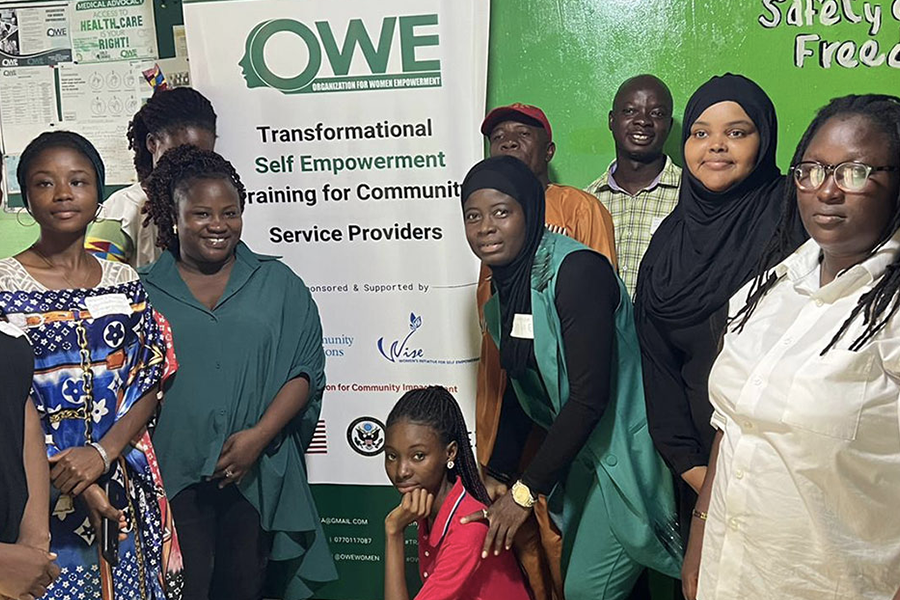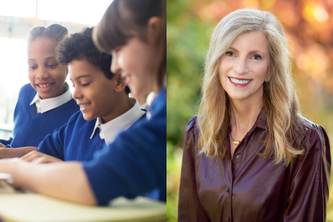
Zamzam Dini flexed her clinical practitioner skills in Liberia last summer by leading workshops for parents and young women on healthy relationships. The experience gave her great insights that have been invaluable in her work as a trauma therapist at the Minnesota Trauma Recovery Institute (MNTRI), where she often is in contact with the immigrant community.
Dini is a Family Social Science doctoral student specializing in Couple and Family Therapy. She traveled to Liberia representing the Women’s Initiative for Self-Empowerment (WISE) in a partnership to facilitate capacity-building training and healthy relationships education for community service providers in Liberia.
She created and managed four Parent Encouragement Program workshops that help parents navigate the K-12 school system to boost their engagement. Some of the topics covered in the parent workshop included adverse childhood experiences and trauma, social and emotional learning in children, attachment, and child development.
“I think something that will stick with me as a future educator is to always remember the wealth and knowledge that is in the room with you,” she says. “I was blown away by the discussions that we were having during the parent workshops and honored to be among them. The ideas that were being shared were some of the most fruitful I’ve witnessed in a classroom.”
“I want to be involved in opportunities where I can disseminate research that is about or might benefit immigrant and refugee communities to these communities directly.” —Zamzam Dini
In addition, Dini led seven healthy relationships workshops with 19 girls from three different groups and four NGOs to help them identify healthy/unhealthy traits in a relationship and how to intervene to ensure they feel safe in the relationships they create with family, friends, and partners.
She says the experience related directly to her research on understanding refugee trauma across generations. Dini, whose family emigrated to the U.S. as refugees of Somalia’s civil war when she was two years old, grew up in Seattle in a vibrant community of immigrants and refugees. She understands deeply the challenges facing these communities.
“I grew up seeing trauma and pain, as well as resilience and strength, in the communities around me, and I knew I wanted to become a clinician from a young age,” Dini says. In college, she majored in psychology as an undergraduate and discovered marriage/couple and family therapy (M/CFT) while researching graduate programs.
“I felt it was the better match for me and my worldview,” she says. ”M/CFT has a systemic worldview and considers relational/contextual factors in understanding people that psychology simply does not do systematically.”
As a trauma therapist at MNTRI, she meets with individuals, couples, and families in treating chronic PTSD and trauma, as well as everyday life stressors. While some of her clients are immigrants, she hopes to work more extensively in those communities after finishing her doctorate degree in family social science.
Her goal in her doctoral program is to help bridge the gap between academic research and immigrant and refugee communities.
“Taking what we are learning in the classroom in our graduate programs and disseminating it to the community at large is a responsibility that we all have as researchers,” she says. “I want to be involved in opportunities where I can disseminate research that is about or might benefit immigrant and refugee communities to these communities directly.”





